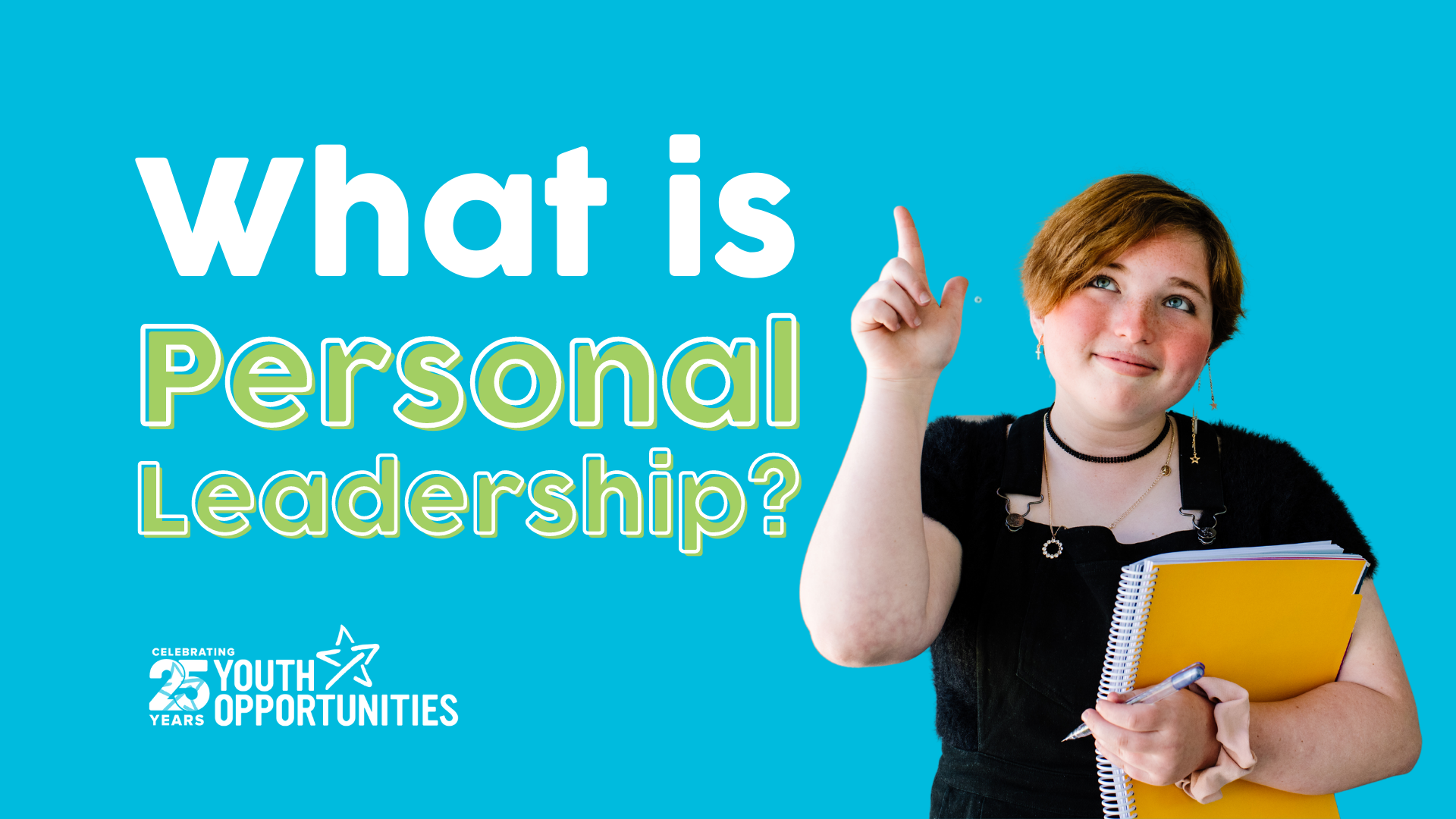This is a common question that we are asked on a regular basis!
You have more than likely heard of what leadership is, but when it comes to personal leadership it is something that people very rarely explore despite maybe already holding those skills. As the Personal Leadership Program is our flagship service, we thought it is important to give an understanding as to what personal leadership is!
Personal Leadership is the ability to lead yourself to success and puts you in the driving seat of your life. By taking positive control and responsibility of your life, you direct yourself towards who you want to be and how you plan to live.
Most people seem to believe their happiness is everyone else’s responsibility… and when it doesn’t come, they blame everyone else, rather than look at themselves and what they can do about it.
Peter Marshman, Founder of Youth Opportunities
Every day we work with young people to develop their personal leadership skills, but that is something everyone can do, here we explain how to become a personal leader.
A successful personal leader is their own hero! It comes down to you creating your own path and owning the decisions you make. So, personal leadership means taking control of your life and taking responsibility for your actions and your decisions.
A fundamental theoretical underpinning of personal leadership is Locus of Control, a theoretical construct derived from Psychologist Julian B. Rotter’s (1954) social learning theory of personality.
It refers to the degree to which individuals believe they have control over the outcomes in their lives.
- Those with an internal Locus of Control have a strong sense of personal responsibility and believe that they make things happen in their lives.
- Those with an external Locus of Control believe they are not in control of their lives but rather it is up to chance, circumstances or other people that determines what happens to them.
Having an internal locus of control does not mean that you are in control of everything, rather it is knowing what is in your control and choosing how you react to things outside of it.
Global research has repeatedly shown that there are many benefits to having an internal locus of control, from better physical and mental health to better job and life satisfaction.
People’s early experience can influence their Locus of Control, especially those with unpredictable childhoods where a condition called learned helplessness can arise. The good news is that people can develop a healthier locus of control through attributional retraining, and that is where our programs come in.
By attributing outcomes to our own behaviour, rather than blaming others or circumstances, starts the journey to become a personal leader. We create the opportunities for young people to develop this skill by providing a framework where a personal leader takes charge of their life by making the Four Big Decisions:
- Decide to be happy! By defining your own success you can take leadership of your own long-term happiness.
- Decide to goal plan! Discover your purpose and choose motivating goals to increase perseverance.
- Decide to send stars! A personal leader knows that positive communication is a choice that improves relationships, and builds social confidence.
- Decide to grow! In order to grow, personal leaders will take responsibility for both their successes and their failures, learning from their mistakes and seeing feedback as a gift.
If it is to be, it is up to me.
William H. Johnson

